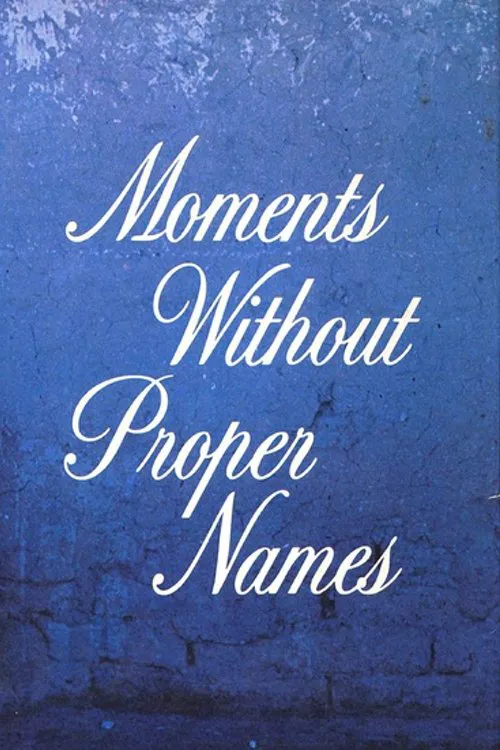Moments Without Proper Names

Handlung
'Moments Without Proper Names,' a poignant and deeply personal film by Charles Parks, serves as an unparalleled introspection into the life and art of its creator. This cinematic self-portrait defies traditional narrative conventions, opting for an abstract approach that seamlessly weaves together various mediums to convey the artist's developmental journey as a person and a filmmaker. The film begins by immersing the viewer in a world of Parks' own photographs. These images, often fragmented and disjointed, appear in rapid succession, evoking a sense of the artist's internal monologue. It's as if Parks is reflecting on his past, scrutinizing every moment, and attempting to make sense of his own identity. These photographic snapshots are then juxtaposed with his poetry, which reads like a confessional journal, full of introspective musings about his childhood, relationships, and the creative process. One of the most striking aspects of 'Moments Without Proper Names' is the way it incorporates Parks' musical compositions. These haunting melodies appear at various intervals throughout the film, often serving as a sonic accompaniment to the visual and verbal narrative. The music takes on a poignant quality, conjuring emotions that the viewer might not even be consciously aware of. These compositions seem to be an integral part of Parks' psyche, providing a glimpse into the inner world of his creativity. The film also features scenes from Parks' films, which are presented as if they're mere fragments, disconnected from their original contexts. These scenes seem to be pulled from different timelines, revealing Parks' preoccupation with themes such as mortality, love, and the fragility of human connection. By interspersing these film clips, Parks is able to explore the various threads that make up his artistic tapestry, demonstrating the ways in which his work often grapples with fundamental questions about existence. Throughout the film, Parks also appears on camera, offering fragments of personal reminiscences that are then interpreted by talented actors, including Avery Brooks, Roscoe Lee Browne, and Joe Seneca. These performances are remarkable not only for their emotional depth but also for the way they illuminate Parks' inner experiences. By using actors to embody his memories and emotions, Parks is able to transcend the limitations of the self and speak to universal truths. One of the most captivating aspects of 'Moments Without Proper Names' is its use of the non-narrative structure. By eschewing a traditional storyline in favor of an abstract, fragmented approach, Parks creates a cinematic experience that's both deeply personal and universally relatable. This non-linear structure mirrors the disjointed nature of human memory, revealing that our lives are comprised of countless moments, each with its own significance and emotional resonance. This structural choice also underscores Parks' notion that self-portraiture is not just about documenting one's physical appearance but about exploring the complexities of one's inner world. In this sense, 'Moments Without Proper Names' can be seen as a testament to the power of filmmaking as a means of self-discovery and introspection. By embracing the ambiguity of his own identity, Parks invites the viewer to participate in this introspective journey, creating a profound and cathartic cinematic experience that lingers long after the credits roll. Through 'Moments Without Proper Names,' Charles Parks shares with us his intimate, often painful, and ultimately redemptive journey as an artist. This masterpiece is not just a film about Parks' life but also a testament to the boundless potential of creativity and the human spirit. As we navigate the complex, fragmented narrative of 'Moments Without Proper Names,' we're reminded that true self-discovery is a lifelong process, full of twists and turns, and that the best art often reflects the intricacies of our own inner experiences.
Kritiken
Empfehlungen


